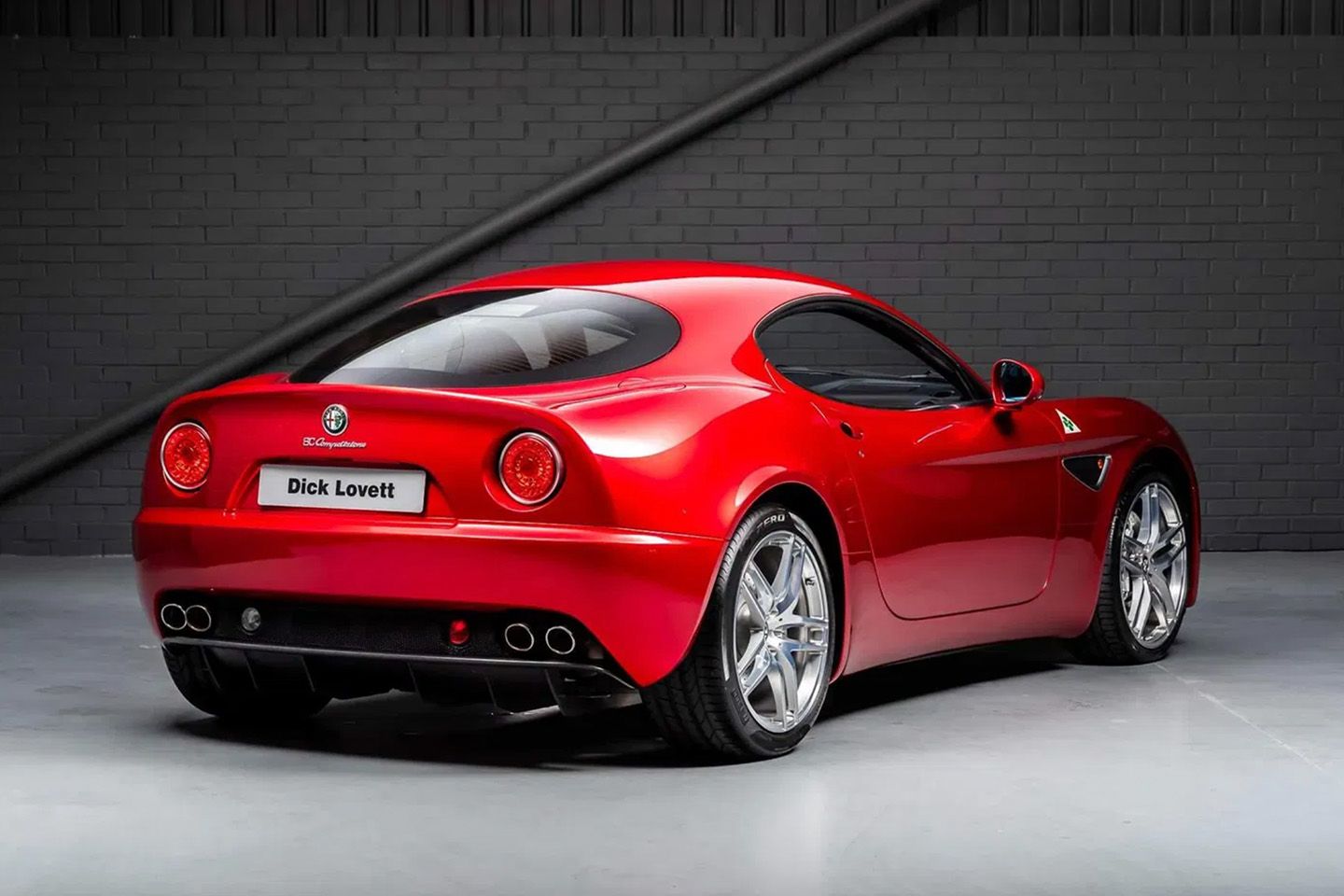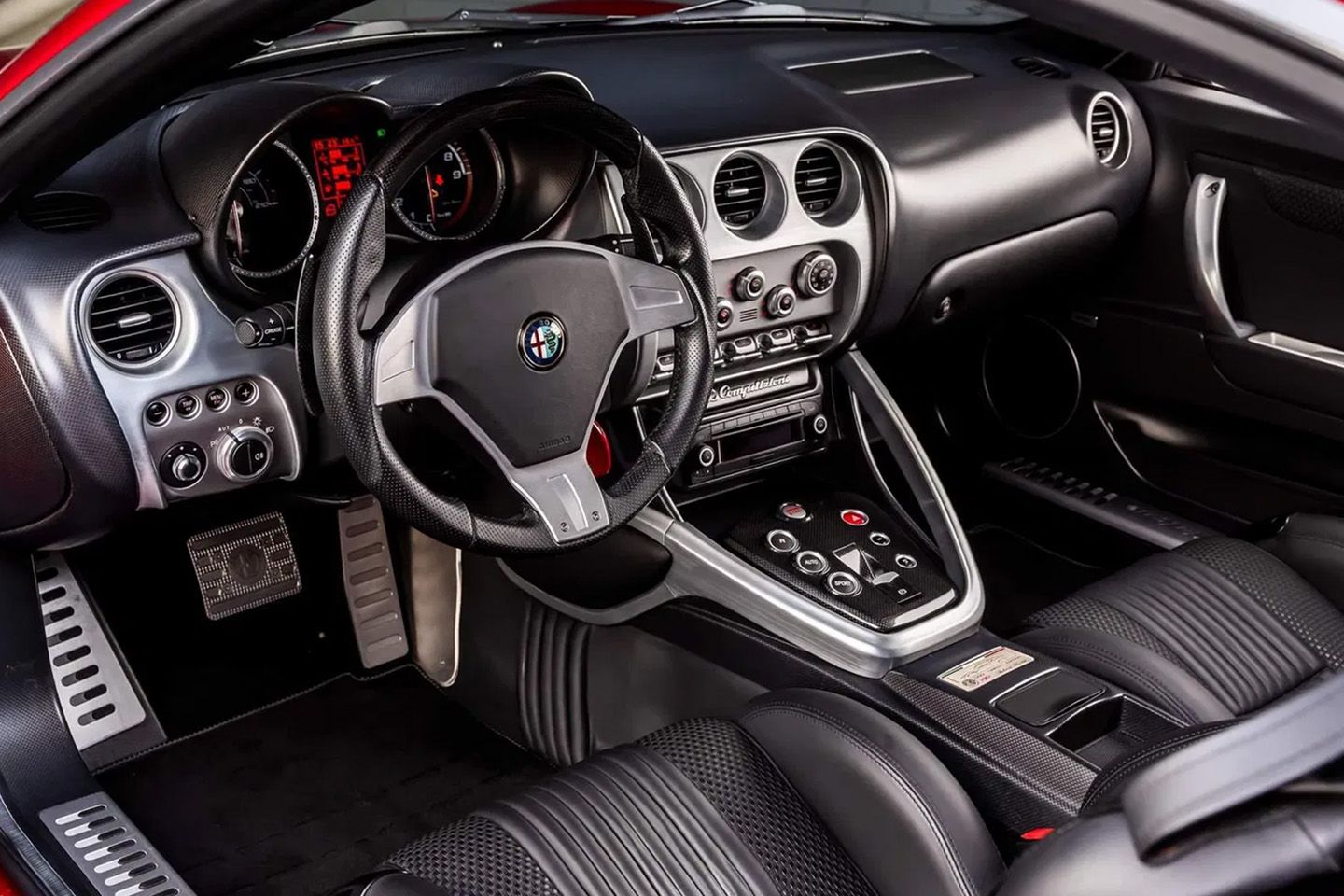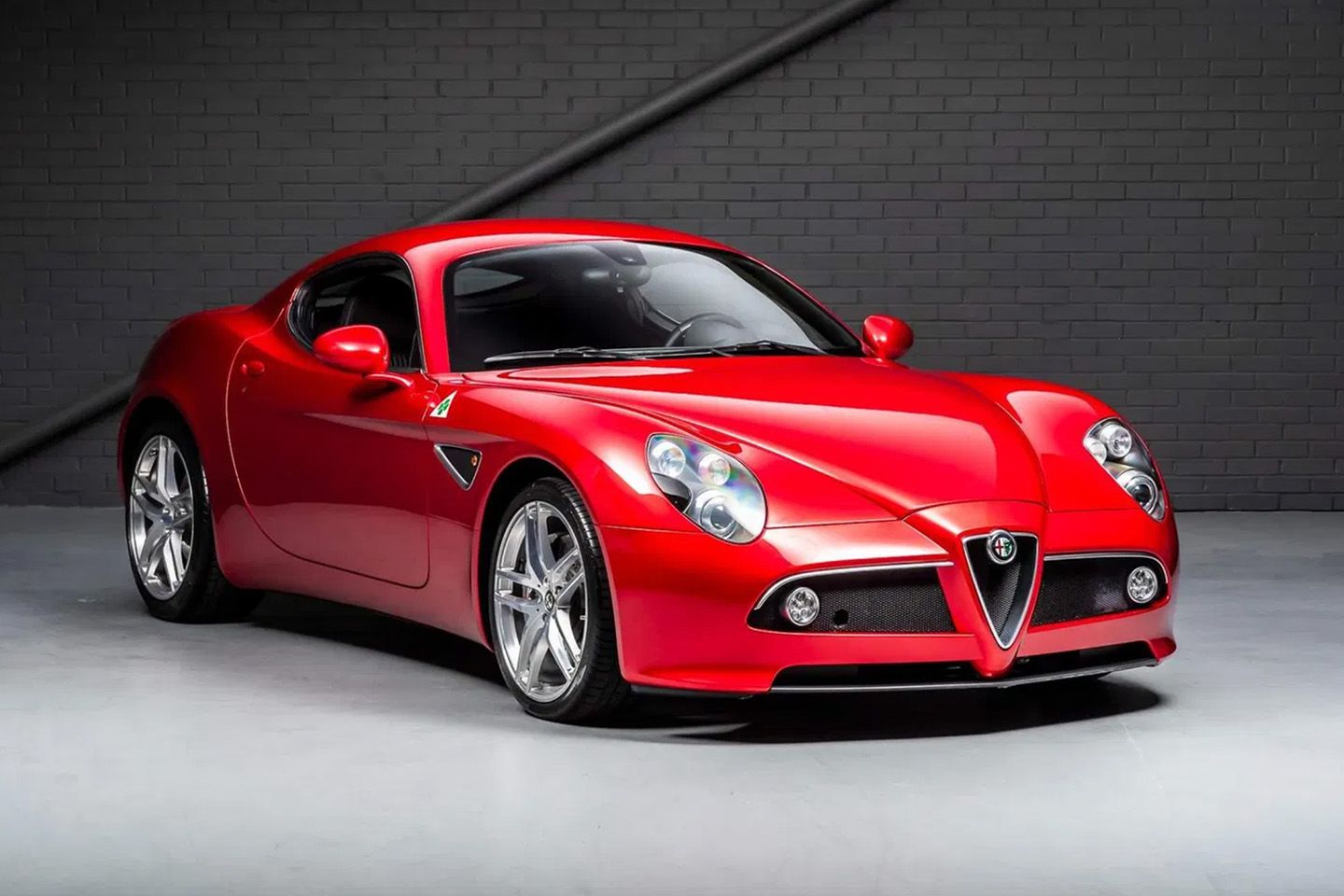For a company that’s widely known for gorgeous performance cars that look right at home parked outside the Hotel de Paris in Monaco, Alfa Romeo doesn’t exactly churn them out. True, it’s always been good at making ordinary cars look very pretty and the occasional (often brilliant) Quadrifoglio model keeps its sporty image alive and kicking, but a dedicated performance car? Those only come around once a decade, if that.
Most recently, that’s taken the form of the highly unexpected and extremely limited 33 Stradale: a stunning homage to its ’60s namesake and based on the underpinnings of the Maserati MC20 which, funnily enough, (albeit allegedly) started life as an Alfa. It’s a hotly debated topic, but if you’re inclined to believe the rumours, Alfa’s take would have been a follow-up to 8C with a name to match. It was supposedly cut, along with the BMW M4-rivalling GTV coupe, to make way for more sure-fire profit makers like compact SUVs. Still, as consolidation prizes go, it doesn’t get much better than the MC20 and 33 Stradale, but it does mean the car like the one we have here remains the most recent (and potentially last) V8-powered Alfa.
In the looks department, topping the old 8C would have been a tall order. Hard to believe the Competizione concept debuted over 20 years ago and that its Wolfgang Egger design would carry over to the production model with no significant changes four years later in 2007. Its name harks back to its eight-cylinder competition cars of old, with its front-engined GT silhouette a modern take on its many beautiful racers from the latter half of the ’30s. But there’s a dash of ’60s in there, particularly the almost-Kammback and duck tail – and yet it still feels modern even to this day.


Moreover, the bodywork was made from carbon fibre like only the most serious of performance GTs of the day. Somewhat less lightweight was the steel chassis it was draped over, meaning the coupe isn’t quite as light on its feet as you’d think it’d be at 1,585kg. Still, a bellowing 4.7-litre, 450hp V8 developed by Ferrari and assembled by Maserati meant there was more than enough grunt to push it along and one hell of a soundtrack while doing so. Then there were the carbon ceramic brakes, limited-slip differential and (very on trend for 2007) a six-speed automated manual transmission. That’s some kit list for a car that, from the outside at least, looks tailor-made for prowling the streets of Saint Tropez.
Safe to say anticipation was high ahead of the 8C’s arrival, especially as Alfa Romeo had never built a supercar in the modern era. Unfortunately for the manufacturer, a scathing TG review has hung over the 8C like a dark cloud for decades, with Clarkson describing the supercar’s handling as “terrible”. Ben Collins wasn’t all that keen on the 8C either, ranking it among his least favourite cars from his time on the show. He did however bundle the TVR Sagaris in that list too, and having recently driven one myself I’m not entirely sure what he’s on about. At six or seven-tenths, the Sagaris is magnificent, just as I’m sure the 8C would be too.
Then again, I wasn’t driving the Sagaris at Stig speeds and I doubt many would in the Alfa 8C, either. Not these days anyway, when this 6,996-mile example will set you back £239,990 – or around double the cost of what it was worth new back in 2009. That does open the door to many V12 Ferraris, like this 2016 F12 or even this 812 Superfast. All very special cars, of course, but how often do you see an 8C roaming the streets of London or relentlessly revving at a car meet? Hardly ever, and that’s a big win in our book.

